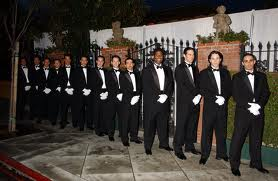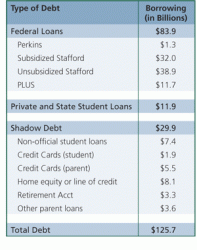
Originally posted at Open Market The Washington Times takes note of the burgeoning higher education bubble in a recent editorial: The cost of a college education has soared far in excess of the cost of health care. This is in spite of — or, more accurately, because of — massive government involvement in subsidizing […]
Read More
The Atlantic recently declared that the 2012 presidential campaign is “no longer about the economy”; that is to say, given the dire economic straits in which we still find ourselves, it is surprising how much attention the candidates are giving to peripheral issues such as Medicare, welfare, and most importantly for our purposes, student loans. […]
Read More
My editors at the Chronicle last week declined to permit me to publish my last piece on the same-sex marriage debate. They pointed out, reasonably enough, the topic is “too far afield from and tangential to academe and academic policy to run on Innovations.” That topic has, of course, had plenty of play on another Chronicle blog, Brainstorm, but I understand […]
Read More
Cross-posted from Big Think. When even the judicious George Will is chiming in on an important policy issue, you just know the concern must be serious and supported by all the right studies. THE HIGHER EDUCATION BUBBLE, the thinking goes, is just like THE HOUSING BUBBLE.
Read More
It’s called “the Bennett Hypothesis,” and it explains–or tries to explain–why the cost of college lies so tantalizingly out of reach for so many. In 1987, then Secretary of Education William J. Bennett launched a quarter century of debate by saying, in effect, “Federal aid doesn’t help; colleges and universities just cream off the extra […]
Read More
Cross-posted from Open Market. In his State of the Union Address, President Obama decried skyrocketing college tuition, attempting to take advantage of public anger over the steadily-worsening college tuition bubble. This was ironic, since his own Administration has done much to foster rising college tuitions. For example, it imposed the 90-10 rule, which forced low-cost educational institutions to raise their tuition to […]
Read More
These are the opening statements of a luncheon debate co-sponsored by the Manhattan Institute’s Center for the American University and the John William Pope Center for Higher Education Policy. The debate, held January 11 in New York City, pitted George Leef, research director of the Pope Center, against Peter Sacks, economist and author of Tearing […]
Read More
As I wrote here last week, newly compiled data shows that a great many college graduates have been settling into jobs that do not require higher education. The data, prepared and released by the Center for College Affordability and Productivity (CCAP), show that a majority of the increased number of college grads since 1992—some 60 […]
Read More
News that student loan debt, at $830 billion, exceeded credit card debt for the first time has sparked renewed interest in the financing of college and its implications for students. Largely ignored in the discussion, however, is the shadow debt, which consists of unorthodox methods of borrowing for college, including home equity loans and lines […]
Read More
The idea of “bubble” has been on everyone’s mind since the escalating housing and economic crisis first erupted in July 2007. Throughout these turbulent times, one institution appeared to be coasting along above the fray: Higher Education. Higher ed has been growing for decades, becoming a staple in the national political economy. The supply and […]
Read More
The week is full of bleak educational news. Take a look: A Forbes story, “The Coming College Bubble”, forsees a world of trouble for Higher Education’s economic fortunes: According to a September 2008 study by the National Association of Independent Colleges and Universities, of the 504 member institutions surveyed, one-third said the credit crunch had […]
Read More